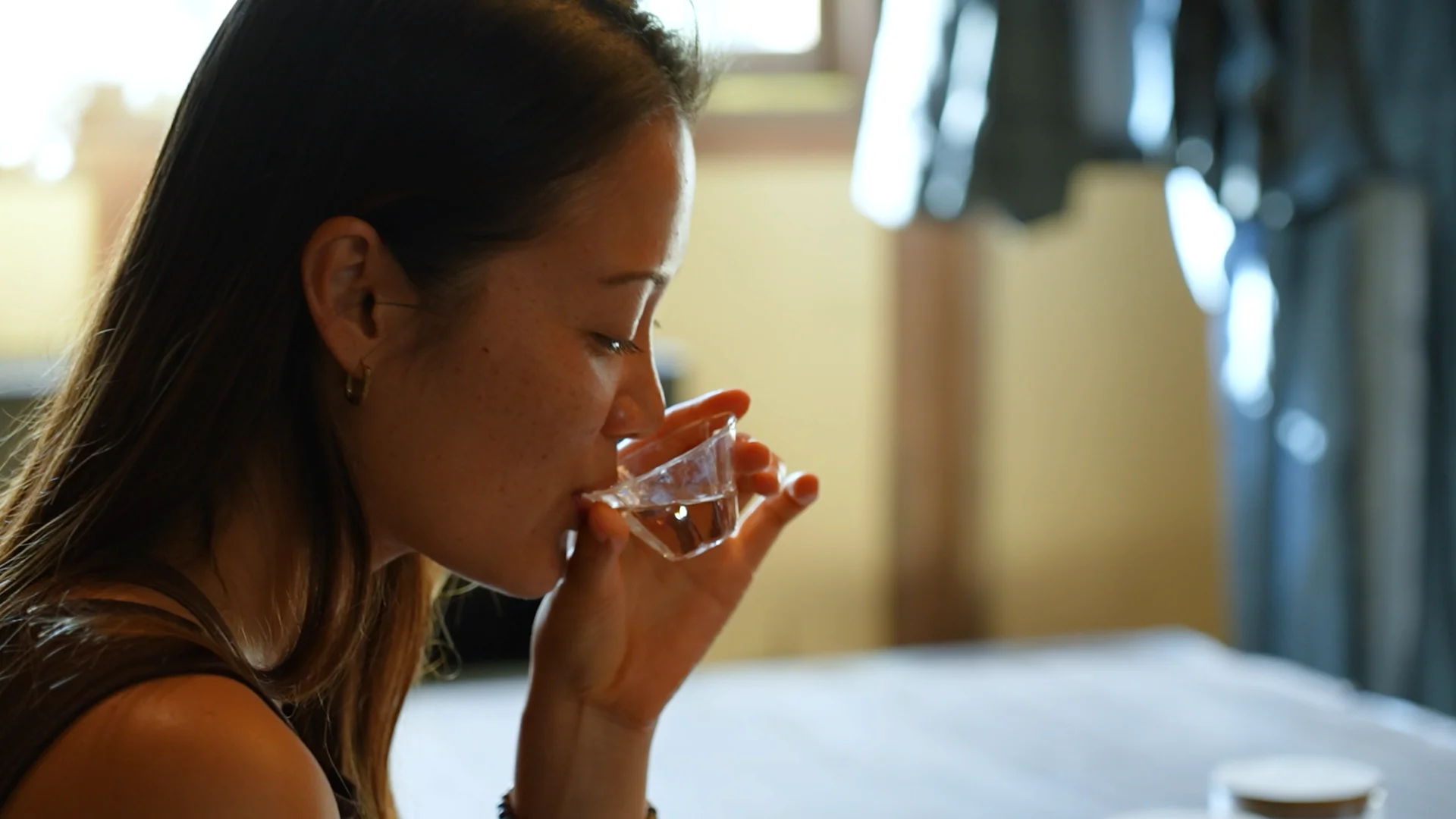Kyoto Botanical Teas Workshop
Create your very own personalized organic tea blend, by exploring farmed and foraged heirloom herbs of Japan with restorative and rejuvenating properties.
Stop by Maana Atelier for this very rare opportunity to craft your own personalized organic tea blend from a selection of playful ingredients that reflect the current microseason. Smell, touch, and taste herbs that are native to Japan, far before the tea plant was introduced to the islands. Tea is not just the green beverage that many associate with Japan, but a brew sourced from a vast variety of regional flora that supports physical and mental health, mirrors the climate and landscape of the season, and a product of agricultural and political history. Tea alone can tell the tale of Japan.
Blend and take home your own personal blend.
¥18,000
Tax included.
SOME OF THE 100% ORGANIC FARMED & FORAGED INGREDIENTS
All of our ingredients are sourced from farmers and foragers of native Japanese flora, to craft environmentally and culturally responsible teas that are also nourishing.

YAMATO TACHIBANA
Region: Nara
Method: Traditional natural farming using no pesticides, or chemical fertilizers
Benefits: Anti-aging, anti-oxidization, reduces allergy symptoms, restores energy
Flavor notes: Soft, homey, earthy

KUROMOJI
Region: Yamanashi
Method: Traditional natural farming using no pesticides, or chemical fertilizer
Benefits: Antibacterial, supports digestive health, relaxation effect
Flavor notes: Lemongrass, pandan, floral

GETTOU
Region: Okinawa
Method: Traditional natural farming using no pesticides, or chemical fertilizers
Benefits: Warms the body, supports cold symptoms, antibacterial properties
Flavor notes: Ginger, sweet, effervescent
ENVIRONMENTAL IMPACT
Choosing teas sourced from a wide range of farmed and wild seasonal flora, avoids unnecessary mono-cropping that strips the land of vital nutrients and leads to devastating soil erosion.





10:00 AM
|
3:00 PM
Kyoto Botanical Teas
Please check the booking calendar for the latest schedule.
Location
FAQ
What is the cancellation policy?
0% cancellation fee if canceled more than 7 days in advance. 100% cancellation fee if canceled within 7 days in advance.
What is your policy on children attending the workshop?
Children aged 6 and older are welcome to join. They will be charged the standard fee. At least one adult must accompany children under 13 years old.
What should I wear?
You will be working with food. Please dress accordingly. And please refrain from wearing fragrances.
Do you accommodate food allergies?
Yes, we accommodate food allergies. Please inform us in advance of any specific dietary requirements or allergies through the intake form when you apply.
Is the workshop bilingual?
No, the workshop will be conducted in English, with some Japanese if necessary.
Do you accommodate private workshops?
Please contact atelier@maana.jp with the number of participants and the dates you’ll be visiting.
Choose an experience

Maana Atelier
Botanical Teas

Maana Atelier
Tea Dye

Maana Atelier
Earthen Wall

Maana Atelier
Fermentation

Tea House in Daitokuji
Tea Ceremony

Studio by Daitokuji
Pottery

MAANA ATELIER is a multi-faceted space created to explore the ever-expanding passions and new offerings for our community. This traditional machiya is thoughtfully restored to reveal its raw beauty and imperfections. A place for exploration through workshops, community events, and more.
ADDRESS
HOURS
Maana Atelier is only open to workshop participants.
In collaboration with
Kyoto Research Institute
Kyoto Research Institute was founded under the direction of Momoko Nakamura. Momoko’s interest stems from 20 years of communicating and educating on cookery culture and the food system, informed by anthropological field research across the Japanese archipelago. The Institute’s research now extends beyond food, expanding into both textile and home, with the growing understanding that each pillar of Japanese living originates from a single terroir.

